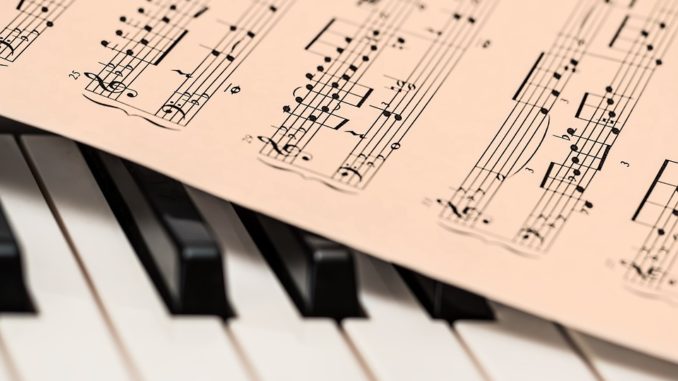
With music tuition fading fast in schools Simon Dutton, founder and CEO of Paritor, believes there is a critical need to establish music education and nurture talent at primary level
The steady decline of music education at GCSE and A-level in the UK has been brought into the spotlight recently, with reports that uptake of GCSE music has dropped by 23% over the past eight years and that one-fifth of schools have stopped offering the subject at GCSE altogether. According to research from Birmingham City University, the typical A-level music class now has just three students.
These alarming statistics beg the question, ‘Why are fewer students choosing to study music?’ Sadly, the issue is that the choice is not theirs.
The vanishing act
There is a combination of factors to blame for music’s disappearing act, from the focus on traditional academic subjects in schools to the social inequality of music provision across the UK. This narrowed focus has a detrimental effect on students’ appetite for studying music. Furthermore, students are denied the opportunity to pursue music studies even if they want to.
One telling study from the British Phonographic Industry (BPI) revealed a 21% decrease in music lesson availability in state schools over the past five years and showed that one in five primary school teachers report having no regular music lesson for their class. Underlying these factors, there remains a stigma around creative subjects in the syllabus. While music is included in the national curriculum for ages 5-14, the emphasis on the English Baccalaureate (EBacc), and the pressure for schools to achieve exam results, has made music seem a less worthwhile pursuit compared with English, maths and science subjects.
Increasingly, the pressure is heavy on primary schools with the delivery of test results coming at the expense of music and other creative arts.
Sparking change with primary music education
As the BPI report has demonstrated, music tuition is fading fast in education from primary level through to further education. When we consider the joys of music, from the personal achievement of learning to sing or play an instrument, to its cultural significance, it is vital that music education survives in schools. Furthermore, the quality and accessibility of studying music must improve for children too.
Redressing the imbalance in music in the curriculum as early as possible, and instilling the value of arts subjects at primary level, is critical. By starting with primary schools, the government and industry can equip students with the means and confidence to start, and continue, their music education.
Transforming perceptions
While many educators will agree that music is as worthy as EBacc subjects, the challenge is the restrictive nature of the current curriculum. Changing this must be spearheaded by the government; it is up to government to endorse music education in schools and the introduction of the new music curriculum provides the ideal time to change attitudes.
The new model music curriculum for Key Stages one, two and three is currently being created ahead of publication later this year. This is an opportunity to create an engaging, varied curriculum which reflects the interests of today’s students and promotes the career opportunities available in the music industry.
An inspiring and inclusive music curriculum in primary schools will help to nurture talent and encourage children to see their creativity as a serious skill, as important as academic abilities. However, its success will also depend on schools actively implementing the syllabus.
Since academies and free schools are not obligated to follow the national curriculum, promoting music education here is crucial. If the government leads the change in music education, and reduces the results’ pressure on schools, it will give teachers the confidence to focus on music as a core subject.
Providing the digital tools to manage tuition
Making music a mainstream subject at primary level will have a great impact on the perception of music amongst teachers, parents and children alike, and will encourage students to pursue their musical aspirations. However, primary schools need the tools to deliver music lessons effectively.
The majority of state primary schools do not have permanent music teachers; instead they rely on music services, hubs and independent tutors for their music provision. Primary schools, therefore, need a system in place to manage this relationship and maintain students’ tuition records. Having seamless communication with music services is necessary to ensure that tutors are scheduled on time and that information is handled securely; however, a combination of stretched administration staff and outdated back office systems means most schools struggle to maintain this relationship.
Having the right infrastructure in place is vital for schools to communicate with outsourced music teachers and maintain up-to-date student records so that they can monitor development. This is the key to schools delivering reliable, high-quality music education as well as giving students the confidence to begin learning and continuing their music studies.
Without straightforward, digital tools in place to manage tuition and the finances from parents, it becomes doubly challenging for primary schools to organise lessons, track children’s progress and, ultimately, ensure a consistent music education.
We need to put music education centre stage. The value of learning music, its positive impact on engagement with other studies and the professional opportunities it creates must all be taken seriously as early as possible in a child’s education – in order to achieve this, primary schools need government support and the necessary digital tools to organise music tuition.
Don’t forget to follow us on Twitter, like us on Facebook, or connect with us on LinkedIn!

Be the first to comment